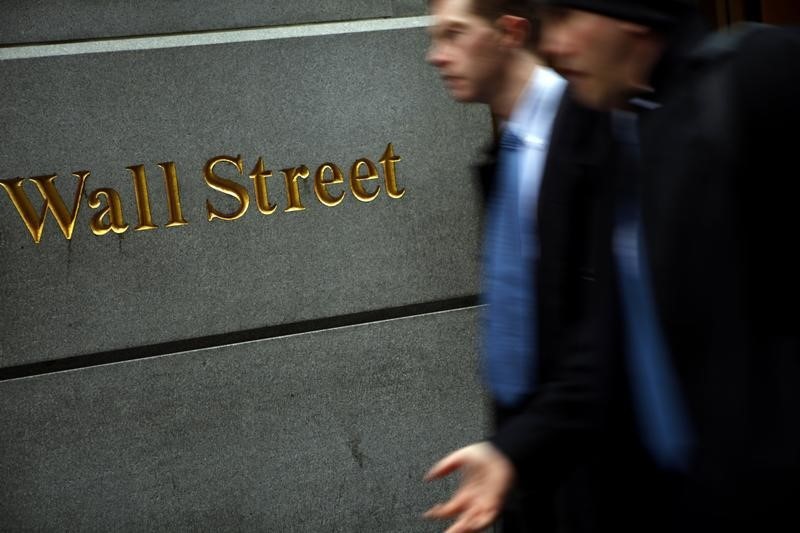Investing.com -- U.S. stock were muted on Tuesday, as investors looked ahead to a bevy of quarterly corporate earnings and crucial economic data. Elsewhere, the Securities and Exchange Commission says a bad actor used a SIM-swapping attack to take control of its X account prior to a false post on the social media platform claiming the agency had approved a new Bitcoin-linked investment instrument, while the Bank of Japan maintains a dovish policy stance and lowers its inflation forecast for the coming fiscal year.
1. Futures muted
U.S. stock futures mostly hovered around the flatline on Tuesday, after equities surged in the previous session on hopes for strong upcoming corporate earnings and ongoing enthusiasm around artificial intelligence.
By 04:52 ET (09:52 GMT), the contracts for S&P 500 futures, Nasdaq 100 futures, and Dow futures were broadly unchanged.
A recent rally in the main averages continued on Monday, with the benchmark S&P 500 in particular jumping to its third-straight positive close for the first time this year. The tech-heavy Nasdaq Composite also rose by 0.3% despite small declines in most of the so-called Magnificent Seven megacap stocks. Meanwhile, the 30-stock Dow Jones Industrial Average climbed above 38,000 for the first time.
Stocks had logged a weak start to the year, but have since rebounded, partly due to investor optimism for a "soft landing" for the U.S. economy. In this scenario, elevated interest rates would contribute to a cooling in inflation without sparking a steep slowdown in economic activity.
"The thought of a soft landing actually [materializing] against all odds are supporting risk assets in all corners of the market," analysts at ING said in a note.
2. Earnings parade intensifies
The upbeat sentiment will face a series of tests this week from a fresh batch of corporate earnings and key economic data.
Several big-name brands are set to report their latest quarterly results on Tuesday, pharmaceutical giant Johnson & Johnson (NYSE:JNJ), consumer goods behemoth Procter & Gamble (NYSE:PG), and diversified manufacturing conglomerate 3M (NYSE:MMM) before the start of U.S. trading. After the bell, traders will be keeping an eye out for figures from streaming group Netflix (NASDAQ:NFLX) and chipmaker Texas Instruments (NASDAQ:TXN).
United Airlines (NASDAQ:UAL) post fourth-quarter adjusted profit per share that topped estimates following its "busiest travel period in history" last month, boosting shares in premarket U.S. trading. Fellow carriers American Airlines (NASDAQ:AAL) and Delta Air Lines (NYSE:DAL) rose in the wake of the numbers.
Later in the week, traders will be keeping an eye out for the first reading of U.S. gross domestic product in the final three months of 2023, as well as the Federal Reserve's preferred gauge of inflation for December.
3. SEC says false X post linked to phone number swap
The top U.S. securities regulator said that a false post that appeared to announce its approval of a spot Bitcoin exchange-traded fund came after a bad actor took control of the phone number associated with its account on social media platform X.
In a statement on Monday, the Securities and Exchange Commission said it was the victim of a "SIM swap" attack, a technique used to transfer a person's phone number to another device without authorization. The unauthorized party then reset the password for the X account, the SEC added.
"Among other things, law enforcement is currently investigating how the unauthorized party got the carrier to change the SIM for the account and how the party knew which phone number was associated with the account," the agency noted.
The fake post on Jan. 9 said the SEC had given a much-anticipated green light to ETFs tracking the spot price of Bitcoin, sparking a frenzy of trading activity around the world's most recognizable cryptocurrency. The validity of the statement was denied by the SEC, which formally approved the ETFs a day later.
4. BOJ leaves dovish stance unchanged
The Bank of Japan kept interest rates at historical lows on Tuesday and its yield curve control policies unchanged, but slightly lowered its inflation outlook for fiscal 2024.
The BOJ left its short-term interest rates at negative 0.1%, and said it will maintain its yield curve control mechanism in allowing 10-year yields to fluctuate in a range of negative 1% to 1%, with a target of 0%. The central bank also offered no changes to its asset purchase programs.
In an announcement on Tuesday, the BOJ added that it expects consumer price index (CPI) inflation to keep trending above its 2% annual target through fiscal 2024, and that price growth will only begin easing by the 2025 fiscal year.
But a majority of the BOJ's policy board members slashed their CPI inflation forecasts for fiscal 2024. Median forecasts for core CPI inflation, which excludes fresh food prices, were now at 2.4% during the period, down from the October forecast of 2.8%.
5. Oil retreats
Oil prices were lower on Tuesday, reversing earlier gains that were driven by a fresh round of strikes by U.S. and British forces on Houthi sites in Yemen.
The Iran-backed Houthis, who control the most populous parts of Yemen, have disrupted global shipping through the Red Sea, raising concerns that crude supply to the important Asian market will be impacted. The group has said their attacks are in solidarity with Palestinians as Israel strikes Gaza.
By 04:54 ET, the U.S. crude futures traded 0.6% lower at $74.31 a barrel, while the Brent contract slipped 0.6% to $79.59 per barrel.
The latest reading of U.S. crude inventories, from the industry body American Petroleum Institute, is due later in the session, and is forecast to fall by about 3 million barrels in the week to Jan. 19.
